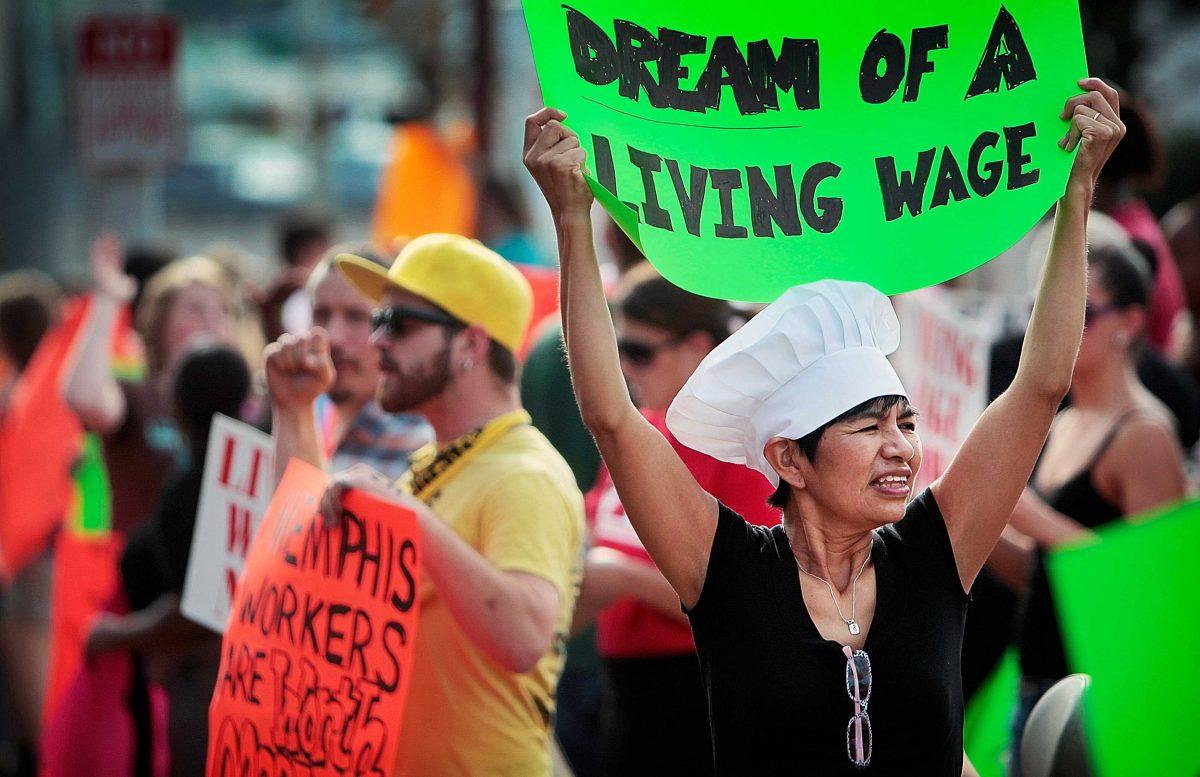The website launched this summer by McDonald’s to help its low-wage workers making an average of $8.25 an hour budget their personal finances raises an important economic question.
Unfortunately, it turns out, that wasn’t the fast food giant’s objective.
In a laughable attempt to illustrate how fast food workers should be able to live off their scant income, Mickey D’s actually highlighted exactly how difficult it is for someone earning close to the federal minimum wage of $7.25 to survive.
Indeed, despite its rosy intentions, McDonald’s practically admits that its employees can’t live off the wages it pays.
Let’s take a gander at the delusional sample “budget journal” provided on their site.
While the sample budget not only starts by assuming employees are working two jobs — which comes out to more than 240 hours a month on minimum wage — it also gives grossly unreasonable estimates for employees’ costs.
First off, the budget allots a mere $20 a month for health care.
Does that sound like a ballpark figure? It shouldn’t.
For an uninsured person to independently buy health care in Louisiana, he or she must dole out an average of $206 a month, according to the Kaiser Foundation.
Secondly, it doesn’t include any budgeted money for childcare, groceries, clothing or gas for the worker’s car.
The groceries expense omission is beyond ridiculous. According to a 2012 Gallup poll, Americans reported spending an average of $151 on food per week.
The missing gas expense is equally as negligent. In 2012, the average American family spent nearly $250 per month on gasoline, according to the U.S. Energy Information Administration.
As you can see, basically every element of McDonald’s budget is unrealistic.
Given how clearly McDonald’s demonstrates the impossibility of living a low-wage life, it begs one simple question:
Would raising the minimum wage from $7.25 per hour to President Obama’s proposal of $9 per hour be good economic policy for University students?
As a student of economics, this is an extremely difficult question to answer.
Why?
Well, what any economics textbook or professor will tell you is that policymakers should always be careful in attempting to regulate market outcomes.
This is, for the most part, absolutely valid.
Whether it’s tariffs, taxes or rent control, nearly every textbook will spell out the negative, unplanned consequences of the government getting in the way of our free market.
And I’d wager that even the liberal ghost of Franklin Roosevelt would agree that setting a minimum wage of, say, $25 an hour would create some significant problems.
But that’s not what we’re talking about here.
There is strong evidence to suggest a modest $1.75 bump, to $9, in the minimum wage would have positive effects for students and workers alike.
First of all, the purchasing power of the minimum wage has been substantially reduced for the past few decades, as a result of a perpetually increasing price level.
To put this in perspective, a minimum wage worker in the 1960s could purchase a larger basket of goods with his or her income than a low-wage worker today, according to the Department of Labor.
At the same time, worker productivity has doubled, according to the Federal Reserve Bank of St. Louis.
Isn’t it time for workers to enjoy the fruits of their labor?
Now, the counterargument is pretty obvious: Wouldn’t an increase in the minimum wage be a major anti-jobs policy?
While this is the subject of ongoing research, the overwhelming answer in the minimum wage report conducted by the nonpartisan Center for Economic and Policy Research indicates little, if any, effect of wage increases on employment.
The primary theme in the CEPR’s explanation is that the labor market doesn’t react to government involvement like it does in the markets for agricultural products or apartments where the “rent is too damn high.”
Instead, the answer inherently lies in the fact that we’re people, and the human bond involved in hiring and firing tends to spark an empathy factor, which makes this topic inherently more complex than studying commodities markets.
What this means — and what the evidence points to — is that the rise in the wages of industrious but low-paid Americans is equivalent to a rise in income.
And when income levels rise, so do spending and saving levels, which means a more robust economy.
To McDonald’s credit, I think they — inadvertently, of course — figured out a creative way to supersize our ailing economy.
Opinion: McDonald’s employes spark debate on raising inimum wage
By Jay Meyers
September 11, 2013
In this Aug. 29, 2013, file photo, Christina Condori joins a crowd of fast-food workers and their supporters in protest, while picketing outside of a McDonald’s restaurant in Memphis, Tenn. Thousands of fast-food workers and their supporters have been staging protests across the country to call attention to the struggles of living on or close to the federal minimum wage. The push raises the question of whether the economics of the fast-food industry allow room for a boost in pay for its workers.





